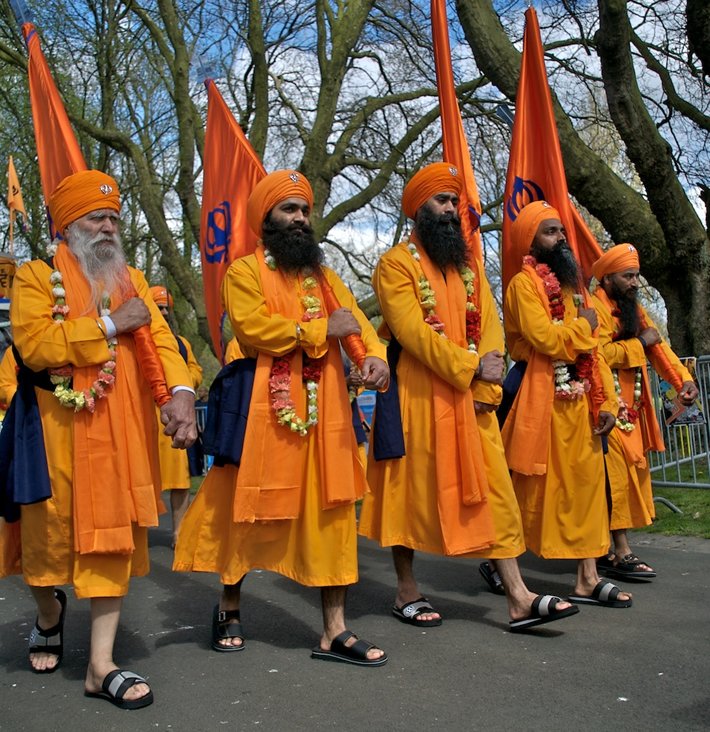Sikhs and Hindus around the world celebrated Baisakhi differently this year. Baisakhi is a northern Indian spring harvest festival that marks the advent of the new year for Sikhs and the solar new year for Hindus.

The festival, also spelled and pronounced “Vaisakhi,” commemorates the founding in 1699 of the Sikh “Khalsa,” a word in the Punjabi language that means “the faithful.” The Khalsa was created by Guru Gobind Singh, the 10th and last in the line of the most revered Sikh spiritual masters.
Typically, Sikhs celebrate Baisakhi by gathering in gurdwaras (Sikh temples), where they offer communal prayers, sing hymns and perform the bhangra, a dance form traditionally associated with the spring harvest festival as well as the largely agrarian culture of India’s northern Punjab state.
None of that happened during this year’s celebration, however, because of social distancing restrictions imposed around the world in the face of the COVID-19 pandemic.
At the Guru Nana Mission in Oakland, New Jersey, for example, prayers and worship were live-streamed, and festive foods for celebrants were ordered online, according to an article published by Associated Press. “For adults, that means Indian cuisine,” the article noted, adding, “Children have a less traditional menu: pizza and pasta.”
“The message going out to worshippers by live-stream is simple,” Pardeep Singh Gill, president of the Sikh Religious Society in Palatine, Illinois, told the AP.It was, “Please don’t come to gurdwara.”
Celebrations were also affected in India. And in neighboring Pakistan, where Sikhs are a minority, worshippers gathered for small ceremonies in gurdwaras and prayed for an end to the COVID-19 pandemic.
Despite the festive nature of Baisakhi, it is not really a Sikh “holiday,” according to Dr. Simran Jeet Singh, Henry R. Luce Fellow for Religion and International Affairs at New York University’s Center for Religion and Media. That is because “Sikhs don’t consider any particular moment in time to be uniquely sacred,” he said in a recent column published by Religion News Service.
“But it [Baisakhi] is one of the most significant days of the Sikh calendar,” Singh pointed out. “Every year, Sikhs from all around the world gather on this day to celebrate the historic occasions and reflect on key lessons that Guru Gobind Singh imparted.”
Sikh tradition has it that Guru Gobind Singh performed a public initiation ceremony before a large crowd of devotees. The guru chose five disciples who came to be known as the Panj Piyaaray, or Five Beloved Ones. He and his wife prepared a drink known as amrit, which the guru administered to the five men.
Then, Guru Gobind Singh, “the man Sikhs referred to as the King of all Kings,” kneeled before the five men and requested them to administer the drink to him, writes Simran Jeet Singh.
“They were taken aback that their guru would show them such deference,” he continues, adding: “And who wouldn’t be? It’s a remarkable display of humility, rooted in the Sikh conviction of equality and service.”
_______________
From its beginnings, the Church of Scientology has recognized that freedom of religion is a fundamental human right. In a world where conflicts are often traceable to intolerance of others’ religious beliefs and practices, the Church has, for more than 50 years, made the preservation of religious liberty an overriding concern.
The Church publishes this blog to help create a better understanding of the freedom of religion and belief and provide news on religious freedom and issues affecting this freedom around the world.


